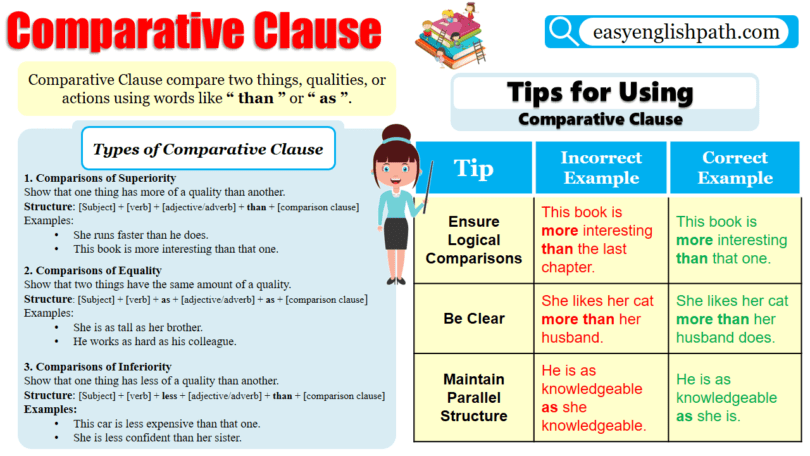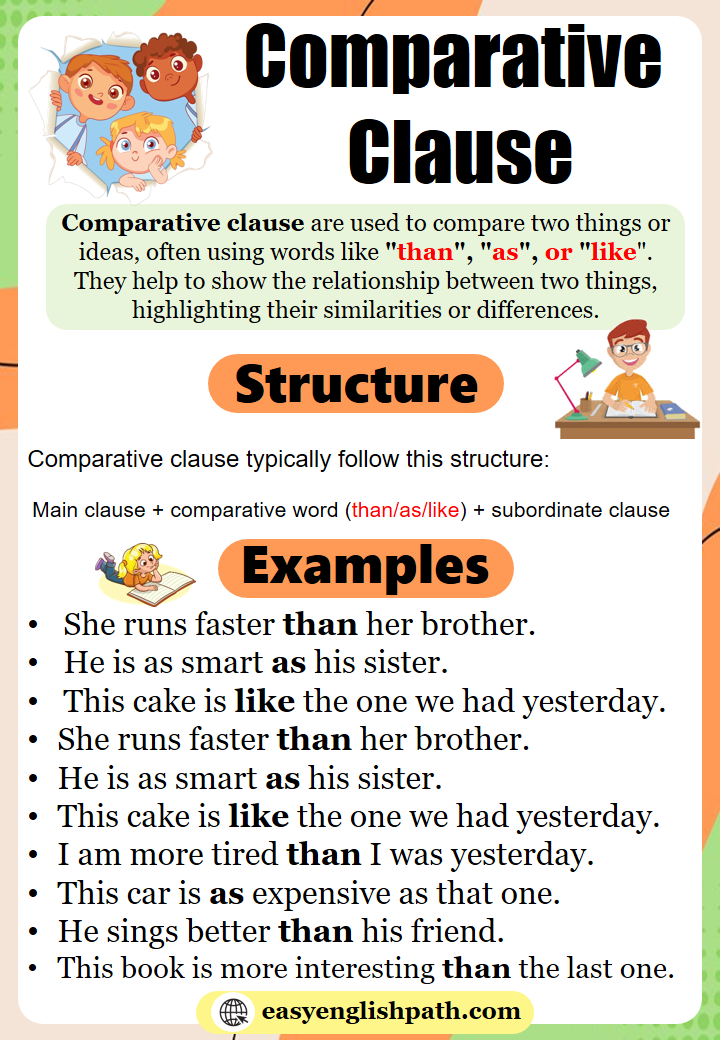A comparative clause is a method to compare two things. It shows how they are similar or different. We use words like as, than, less, and more to make these comparisons. This helps us describe things in a more detailed way. Let’s learn more about how to use them!
What is a Comparative Clause?
A Comparative Clause is a dependent clause that is used to compare two things using words like Than, As, Less, More.
- More beautiful than her sister.
- He runs faster than me.
- She is older than her husband.
- This cake is sweeter than the last one.
How to Use Comparative Clause?
We use comparative clauses to compare two things. Use the following structures:
- As + adjective + as (equal)
- More + adjective + than (bigger/greater)
- Less + adjective + than (smaller/lesser)
- Than (for short comparisons)
For example, you can say:
- I am as tall as my brother.
- She is more beautiful than her sister.
- He is less experienced than his boss.
- She runs faster than me.
Remember, It is often used to introduce a subordinating conjunction.
Rules for Comparative Clause
Comparative clauses are used to compare differences between two things or situations. They often use comparative adjectives or adverbs and conjunctions such as “than” or “as.” Here are the main rules for constructing comparative clauses, along with examples:
1. Using -er for Short Adjectives
For one-syllable adjectives and some two-syllable adjectives ending in -y, add -er to the adjective, followed by -than.
- She is taller than her brother.
- This car is faster than that one.
- I am happier today than yesterday.
2. Using more for Long Adjectives
For adjectives with two or more syllables (excluding those ending in -y), use -more- before the adjective, followed by than.
- She is more beautiful than her sister.
- This book is more interesting than the last one.
- That watch is more expensive than this one.
3. Using as … as for Equality Comparisons
To express equality, use -as before the adjective and another -as after it.
- He is as tall as his father.
- This bike is as fast as the motorbike.
- She is as happy as her friend.
Comparative Clause Examples
- She sings as sweetly as her mother.
- He is as strong as his father.
- This phone is as good as the newer model.
- The test was as hard as I expected.
- He is more experienced than his colleagues.
- This cake is more delicious than the last one.
- She is less outgoing than her friends.
- This book is less interesting than the previous one.
- She runs faster than me.
- He is stronger than his brother.
You May Also Like






